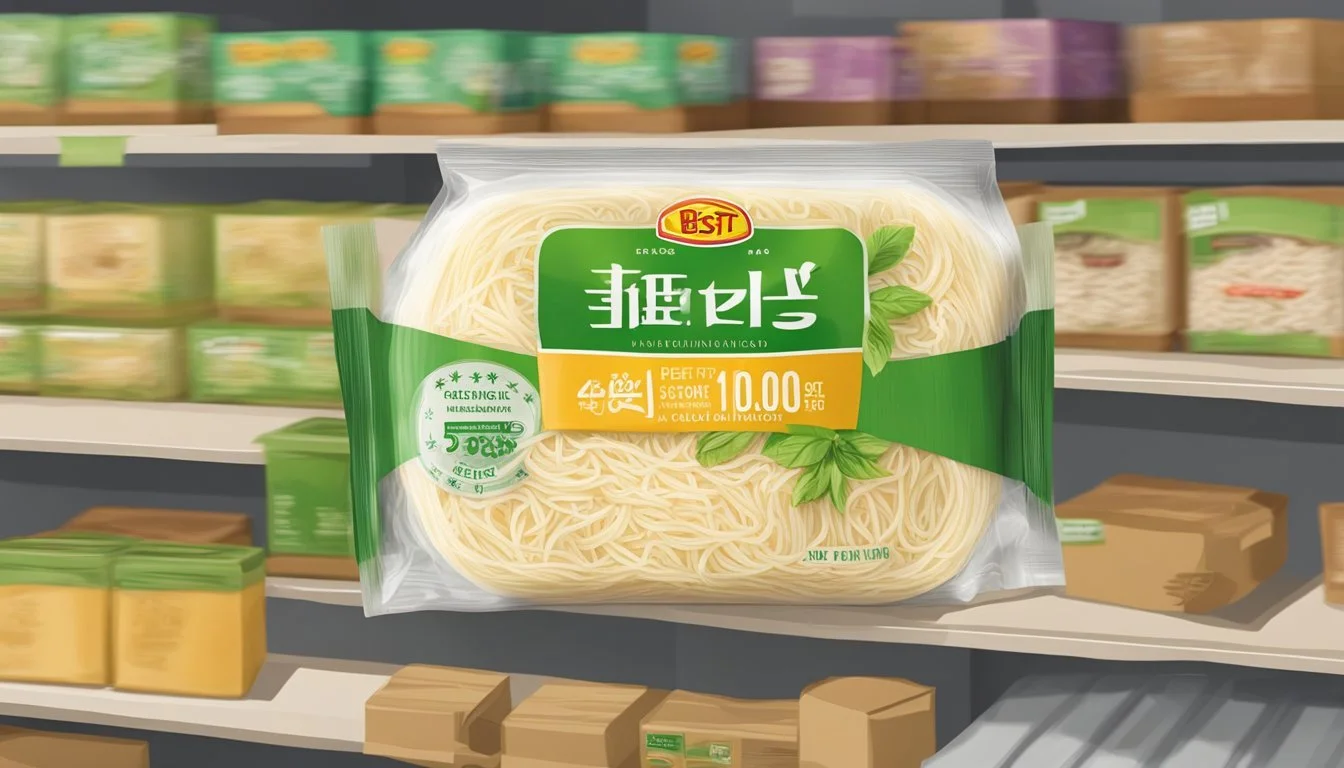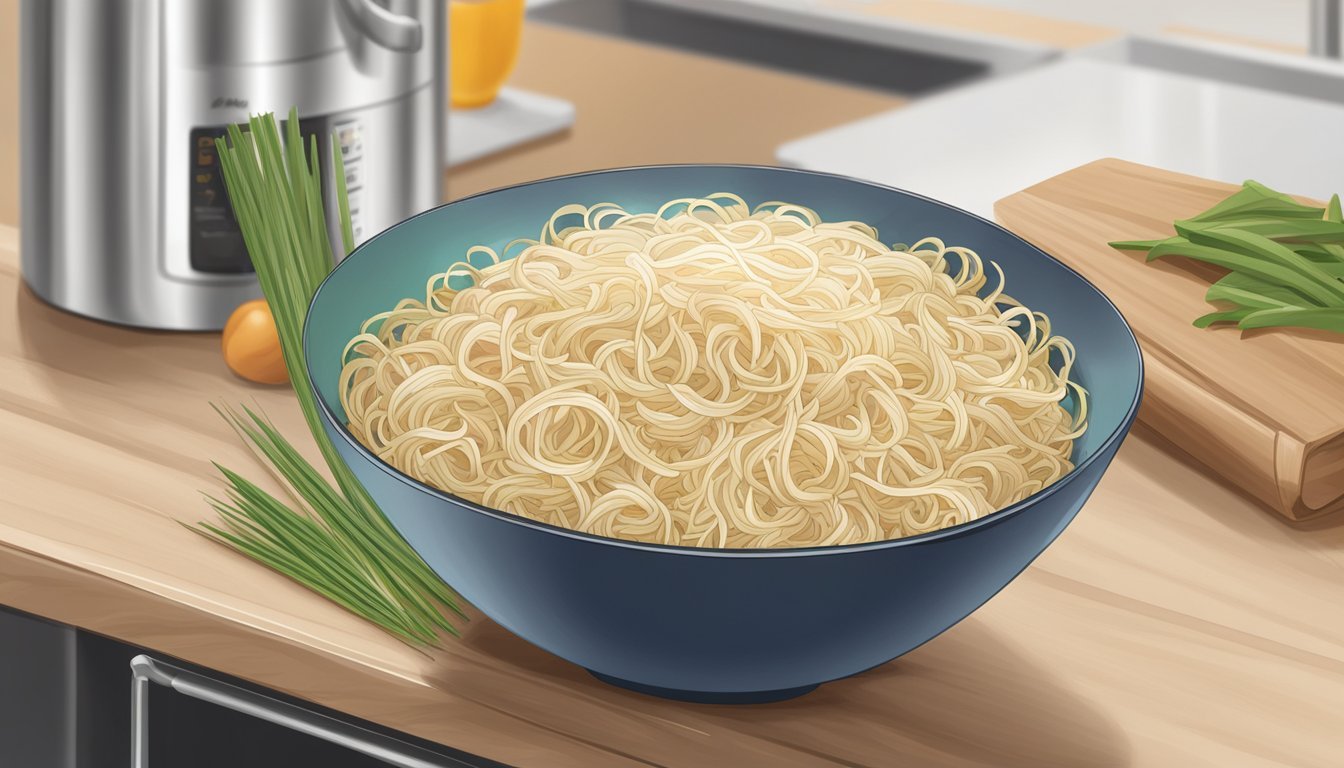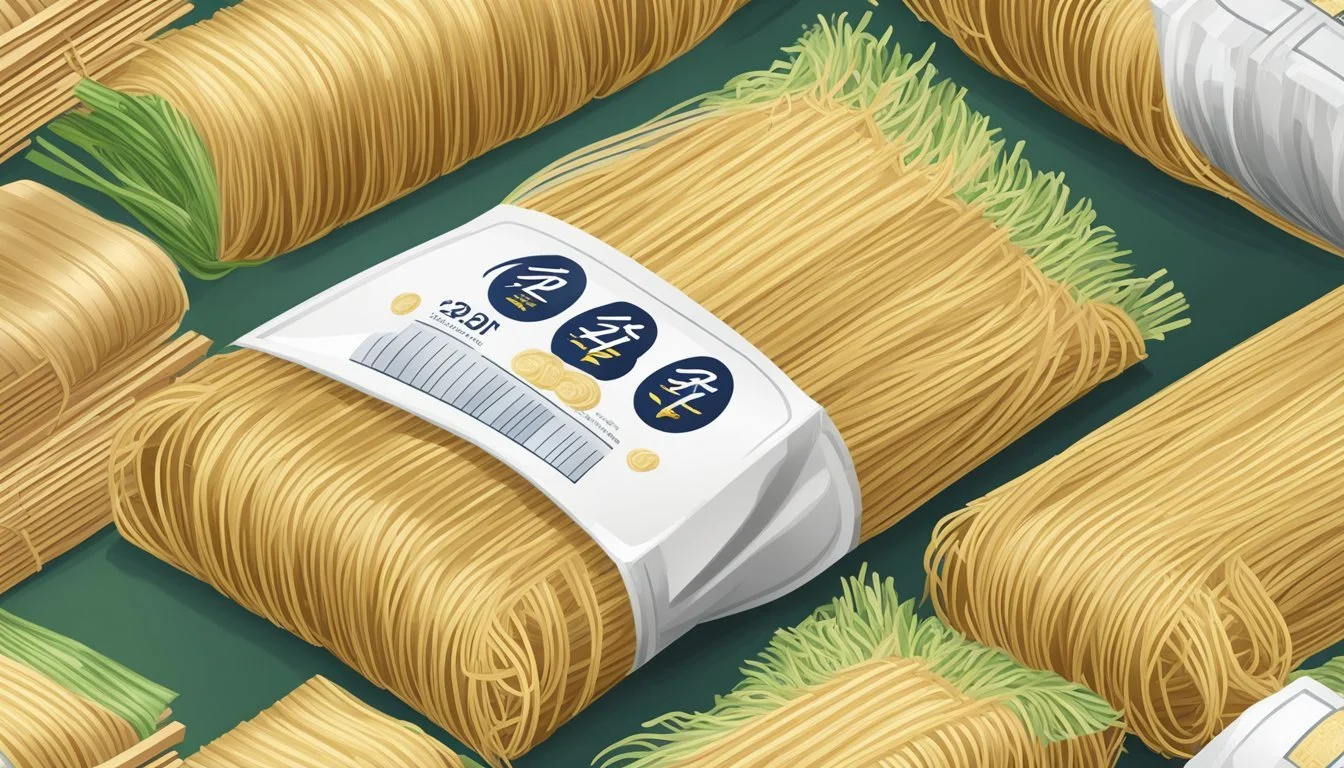How Long Do Rice Vermicelli Noodles Last?
Shelf Life and Storage Tips
Rice vermicelli noodles (how long do vermicelli noodles last?) are a staple ingredient in many Asian cuisines, valued for their versatility and quick cooking time. As with any food product, the shelf life of rice vermicelli noodles is an important consideration for both food safety and maintaining the quality of the dishes they are used in. Uncooked rice vermicelli can remain fresh for an extended period, often up to two years when stored properly in a cool, dry place, away from moisture and pests. The packaging plays a crucial role in preserving their freshness, and thus, it is essential to keep them in a tightly sealed plastic package or an airtight container.
Once cooked, the shelf life of rice vermicelli noodles is significantly reduced. To maximize longevity, cooked vermicelli should be stored in the refrigerator within two hours of cooking to prevent bacterial growth. Refrigerated and properly stored in an airtight container, they can last for 3 to 5 days. Care must be taken to avoid leaving rice noodles (how long do rice noodles last?) at room temperature for prolonged periods, as bacteria grow rapidly between 40 °F and 140 °F, increasing the risk of foodborne illnesses.
For those who have prepared more rice vermicelli than needed, understanding these storage guidelines ensures that leftovers can be safely enjoyed later. When dealing with fresh, uncooked rice noodles, adherence to storage recommendations will prevent spoilage, and checking the expiration date before purchase will contribute to food safety. Whether incorporating them into stir-fries, soups, or salads, proper storage techniques for rice vermicelli noodles are key to enjoying their delicate texture and flavor in various dishes.
Understanding Rice Vermicelli
Rice vermicelli is a staple in Asian cuisine, renowned for its versatility and the different types available. It is made from rice flour (how long does rice flour last?) symbolizing a gluten-free alternative to wheat-based noodles, and offers a distinct profile in both nutrition and culinary uses.
Types of Rice Vermicelli
Rice vermicelli noodles come in varying forms, primarily categorized by their preparation method:
Fresh Rice Vermicelli: These noodles are soft and have a delicate texture, typically lasting up to four days in the refrigerator.
Dry Rice Vermicelli: This variety has a longer shelf life and can be stored for a considerable time when kept in a cool, dry place. Typically, these noodles retain their best quality for up to three years.
These noodles are predominantly made from rice flour and sometimes incorporate tapioca starch (how long does tapioca starch last?) to enhance their texture. Unlike noodles made from wheat flour, rice vermicelli is naturally gluten-free.
Nutritional Profile
Rice vermicelli provides a significant source of carbohydrates, with a moderate amount of calories per serving. The nutritional content for a standard serving size is outlined as follows:
Calories: Varied depending on serving size
Carbohydrates: A primary energy source within the noodles
Protein: Generally lower in rice vermicelli compared to wheat-based noodles
Fiber: Minimal, as it is largely composed of refined rice flour
The absence of gluten makes it a suitable ingredient for those adhering to a gluten-free diet. Its nutritional content lends itself well to a balanced meal when combined with vegetables and protein. The versatility of rice vermicelli allows it to be integrated into a diverse array of dishes beyond traditional Asian cuisine, contributing to its global popularity.
Storing Rice Vermicelli
Proper storage of rice vermicelli noodles is crucial to preserving their quality and extending their shelf life. It is important to consider both the type of vermicelli, uncooked or cooked, and the storage methods that protect the noodles from oil, air, and humidity.
Uncooked Vermicelli Storage
Uncooked rice vermicelli should be kept in a cool, dry place, away from any source of heat or moisture. The optimal conditions involve storing them in an airtight container to prevent exposure to air and humidity, which can hasten degradation. If stored properly, uncooked rice vermicelli can maintain their quality well beyond the "best by" date printed on their package.
Shelf Life: Before opening, vermicelli can often last for months when stored in a pantry.
Airtight Containers: Use tightly sealed jars or plastic bags to minimize air exposure.
Location: A cupboard away from appliances that produce heat is ideal.
Cooked Vermicelli Storage
Once cooked, vermicelli noodles must be stored in the refrigerator to maintain their quality and safety. It is essential to cool the noodles to room temperature before placing them in the refrigerator, as hot food can raise the internal temperature. Cooked vermicelli should be placed in a tightly closed container to prevent moisture and other flavors in the refrigerator from affecting them.
Refrigerator Storage: Store in airtight containers or resealable plastic bags.
Shelf Life: Typically lasts for 3 to 5 days when refrigerated.
Preventing Dryness: If possible, drizzle a small amount of oil over the noodles to keep them separated and retain moisture.
By following these storage guidelines, one can ensure that rice vermicelli noodles remain fresh and are of the best quality when used in a variety of dishes.
Shelf Life of Rice Vermicelli
Rice vermicelli noodles' shelf life varies greatly depending on whether they are cooked or uncooked. Knowing how to store them properly can significantly extend their usability and prevent spoilage.
Uncooked Vermicelli Shelf Life
Uncooked rice vermicelli noodles, when stored properly, maintain their quality for a considerable period. Dried vermicelli can be kept in a cool, dry place such as a pantry, for about 2-3 years. It is crucial to keep them away from moisture and heat, which can lead to spoilage. To recognize if the noodles have gone bad, look for signs like an off odor, visual discoloration, or a changed texture. If stored in the refrigerator, fresh, uncooked rice noodles can last up to four days in an airtight container.
Cooked Vermicelli Shelf Life
Once cooked, rice vermicelli noodles should be kept in the refrigerator and ideally consumed within 3-5 days. They must be stored in an airtight container to prevent contaminants and moisture from affecting their quality. Leaving cooked vermicelli at room temperature is not advisable; it should not be consumed if left out for more than 2 hours, as bacteria grow rapidly at temperatures between 40°F and 140°F. Signs of spoilage in cooked vermicelli include an unusual smell, a slimy texture, and any form of discoloration.
Preventing Spoilage
Proper storage and attention to spoilage indicators can significantly increase the lifespan of rice vermicelli noodles. Ensuring these noodles are kept free from moisture and other contaminants helps maintain their quality and safety for consumption.
Signs of Spoilage
Color and Odor: Vermicelli noodles should be free from discoloration and off odors. Any changes might signal spoilage, with colors turning duller or spots appearing, potentially indicating mold growth.
Texture: They should retain a dry, firm texture. Stickiness, clumping, or a slimy feel can indicate spoilage.
Mold: Visible mold growth, which could appear as fuzzy or spotted areas, is a definite sign of spoilage.
Bacillus Cereus: This is a bacterium that can contaminate rice products and thrive, especially when products are improperly stored. Although not visible, its presence can make vermicelli unsafe to eat.
Tips to Extend Freshness
Storage Containers: Store vermicelli noodles in air-tight containers to prevent the entry of moisture and other contaminants.
Humidity Control: Keep them in a cool, dry area. High humidity levels can lead to spoilage due to moisture absorption.
Best Before Date: Heed the best before date, while understanding that vermicelli can still be safe to eat past this date if stored correctly.
Refrigerating and Freezing: Fresh homemade vermicelli can be kept in the refrigerator wrapped in plastic wrap, extending its life up to four days, whereas freezing can prolong its usability even further.
Plastic Wrap: When refrigerating, ensure vermicelli is tightly wrapped to avoid air and moisture exposure.
Inspect Regularly: Regular checks for any signs of spoilage can help in consuming the noodles while still fresh and safe.
Cooking and Reheating
Storing rice vermicelli noodles correctly after cooking directly impacts their texture and flavor when reheated. This section details the appropriate techniques to cook and reheat these delicate noodles.
Proper Cooking Techniques
The key to cooking rice vermicelli is to avoid ending up with mushy noodles. They should be al dente, slightly firm to the bite. One starts by boiling water, then adding the noodles and cooking for 2-3 minutes. Stirring gently with chopsticks during the boil can prevent sticking. For dishes where a softer texture is desired, like in certain stir-fries or soups, immersing the vermicelli in hot water for about 10-15 minutes allows them to soak up enough heat and moisture.
Reheating Rice Vermicelli
Reheating rice vermicelli should preserve the noodles' integrity without overcooking them. Leftovers can be refrigerated for 3-4 days and frozen for up to 2 months. To maintain the quality, ensure the noodles are completely dry and cool before storing to prevent any sogginess. When reheating, noodles can be placed in boiling water briefly, just to heat through, or incorporated directly into a stir-fry or soup to be warmed. If using an oven, cover with aluminum foil and bake at 350 degrees Fahrenheit for 15-20 minutes, mixing halfway to ensure even heating. This careful reheating minimizes the risk of turning the vermicelli mushy and avoids food poisoning from improperly stored leftovers.
Using Rice Vermicelli in Cuisine
Rice vermicelli noodles are a versatile ingredient that enhance the texture and flavor of diverse dishes. Their neutral taste allows them to absorb the rich flavors of the accompanying seasonings and ingredients.
Traditional Asian Dishes
In Asian cuisines, rice vermicelli noodles are often a staple ingredient. They appear in various forms, from soup bases to dry stir-fries. For instance, in Vietnamese cuisine, they are essential in making traditional spring rolls, usually wrapped with herbs, vegetables, and sometimes meat or shrimp. Vermicelli noodles also serve as a key element in dishes such as Bun Thit Nuong, where grilled meats are served over a bed of vermicelli noodles garnished with nuts, fresh herbs, and fish sauce. (how long does fish sauce last?)
Soups:
Pho: A fragrant beef or chicken broth with herbs and vermicelli noodles.
Bun Rieu: A tomato-based soup with crab (how long does crab last?), pork, and vermicelli noodles.
Stir-fries:
Singapore Noodles: Stir-fried vermicelli with curry powder, vegetables, and sometimes shrimp or chicken.
Pad Thai: Commonly made with flat rice noodles but can also be prepared with vermicelli, featuring peanuts, tofu, and bean sprouts.
Creative Culinary Uses
Chefs and home cooks alike have incorporated vermicelli noodles into imaginative culinary uses beyond traditional dishes. They might substitute pasta with vermicelli in Italian-inspired recipes, creating lighter versions of classic meals. Additionally, vermicelli can be deep-fried to provide a crunchy texture for salads or as a novel presentation technique.
Pasta Dishes Substitute:
Vermicelli Alfredo: Rice vermicelli as a substitute for fettuccine in a creamy Alfredo sauce.
Vermicelli Pesto: Tossed with a basil pesto sauce (how long does pesto sauce last?), sometimes with added prawns or chicken.
Salads and More:
Crispy Vermicelli: Deep-fried noodles added to salads for crunch.
Vermicelli Cake: Pressed vermicelli noodles pan-fried to form a savory cake base, topped with various toppings.
When to Discard Rice Vermicelli
Rice vermicelli noodles, a staple in many Asian cuisines, require proper storage conditions to maintain their quality. Signs of spoilage, such as off odors, visual discoloration, and the presence of mold, are clear indicators that the noodles should be discarded.
Uncooked Rice Vermicelli
Uncooked rice vermicelli typically has a long shelf life when stored in a cool, dry place. The product's expiration date on the packaging serves as a guideline. However, despite this date, if any signs of spoilage are evident before this time, the noodles should not be used.
Storage specifics include:
Plastic Bag: Keep the noodles in their original plastic packaging or transfer to an airtight container.
Pantry: Store away from heat and moisture.
Cooked Vermicelli
Once cooked, the noodles' shelf life decreases dramatically. They should be kept in the refrigerator and consumed within 3-4 days to ensure safety and quality.
For cooked vermicelli:
Do not leave at room temperature for more than 2 hours.
If there is an off odor or discoloration, discard immediately.
Refrigeration tips:
Store in an airtight container.
Quickly cool before refrigerating to limit bacterial growth.
Indicators for Disposal
Immediate disposal is necessary if:
There is a presence of mold.
The normally subtle aroma changes to an unpleasant odor.
Noodles' color shifts in a way that is not consistent with the typical product appearance.
By adhering to these guidelines, consumers can ensure they enjoy their rice vermicelli in the best possible condition while avoiding potential health risks associated with spoiled food.
Common Questions
When dealing with rice vermicelli noodles, consumers often have specific questions relating to their shelf life and best practices for storage. Understanding the differences and storage options is crucial for maintaining quality and safety.
Difference Between Rice and Wheat Vermicelli
Rice vermicelli noodles are made from rice flour, while wheat vermicelli noodles are made from wheat flour. Rice vermicelli is gluten-free and has a translucent look when cooked, as opposed to the opaque appearance of wheat vermicelli. In terms of storage, both types should be kept in a cool, dry place, but rice vermicelli is more perishable once cooked, typically lasting 3 to 5 days in the fridge.
Can You Freeze Rice Vermicelli?
Yes, rice vermicelli noodles can be frozen to extend their shelf life. To freeze cooked rice vermicelli:
Let them cool completely to prevent ice crystal formation.
Place them in an airtight container or a sealable freezer bag.
Store them in the freezer for up to 2 months for the best quality.
Freezing uncooked rice vermicelli is not advisable, as they are best stored in a dry environment. If they have been exposed to moisture and are not within their expiration date, it's best to opt for fresh noodles.









